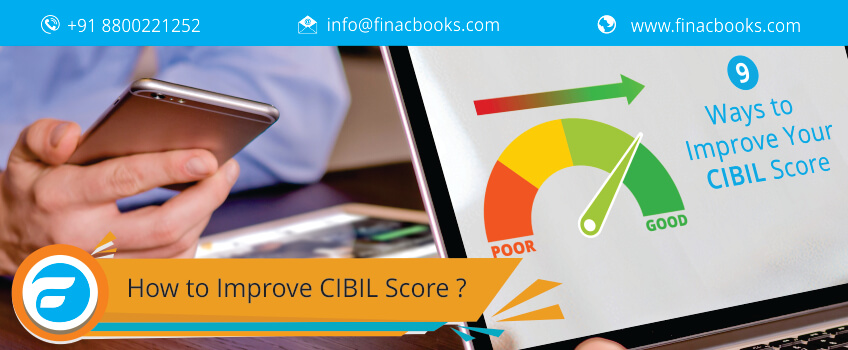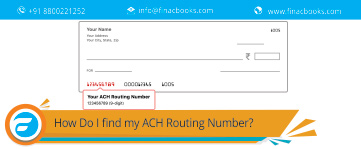Banks and Financial Institutions have come a long way in providing the best offers and interest rates on loans. They have a different scheme for every individual. The one factor that determines this scheme is your credit score. Having a good CIBIL score has many benefits.

What is a CIBIL Score and CIBIL Report?
CIBIL Score is a 3 digit numeric summary of your credit history, derived by using details found on your CIBIL Report (also known as Credit Information Report CIR) and ranges from 300 to 900. The closer your score is to 900, the higher are the chances of your loan application getting approved. A Credit Information Report is an individual’s credit payment history across loan types and credit institutions over a period of time. It doesn’t contain the details of your savings, investments or fixed deposits.
Also Read: Get Loan from Government to Start a Business in India
What is a Credit Score?
Your Credit Score is the number that indicates your credit worthiness based on the history of your transactions with financial institutions in the past and at present. The higher your credit score, the greater chances of getting your loan approved. You are also guaranteed better offers and interest rates from money lenders.
In India, there are 3 credits rating bureaus or agencies and these are -
- CIBIL (Credit Information Bureau India Limited)
- Equifax
- Experian
Each of these rating agencies has various ranges for their credit scores. The most popular credit score in India is the one issued by CIBIL
Credit Scores Explained
Excellent (800-900): Having this score means that you have ensured timely payments and dues on your loans. This score entitles you to get the best offers, interest and credit cards from financial institutions and money lenders.
Good (700-800): This score shows you are financially responsible and a safe borrower. You may have missed a few payments or two but, all your dues are clear. You will get your loans approved but may have to settle for higher interest rates.
Average (500-700): This means you may not get your loan on time but does not shun the possibilities of it in the future. You can improve your score overtime by following best practices such as paying credit bills on time, keeping the right credit mix etc.
Bad (300-500): This is considered as a low CIBIL score and your chances of being approved for new loans or credit cards are very less in this case. Primary reason for getting this score is history of several missed payment deadlines, default credit accounts, etc.
What factors affect my CIBIL Score?
- Credit Repayment – A record of payments made to your previous lenders can determine your credit worthiness. Timely payments of EMI’s on loans increases your score and delays, reduce it.
- Credit Mix Ratio –If the percentage of unsecured loans (personal loan/credit cards) is higher than your secured loans (home loan/auto loan), it may have a negative impact on your credit score.
- New accounts - Opening multiple new accounts in a short period of time may negatively impact your score.
- Number of Hard Inquiries for Credit – A history of applying for multiple loans over a short period of time affects your credit score. The more number of loans applied for in a period indicates a higher debt and mishandling of credit, leading to a negative score.
- Credit Utilization Ratio - This is the ratio of the credit that you are using to the total credit available to you. Never use the full credit amount at once.
- Default as a Guarantor - If the person you have guaranteed for defaults payments, your credit score gets affected.
- Regular Review of Credit Reports - The banks may sometimes make errors or may not update your clearance, negatively affecting your score.
- Unreasonable Requests for Increase in Credit Limit - The number of times you request for an increase in your credit limit affects your credit score. The more number of times affects your CIBIL score negatively.
- Time given for Debt Servicing - Long period debts with payments on a regular basis reduces the risk of a lower credit score.
How can I improve my CIBIL Score?
Your CIBIL Score will not improve overnight. It can be attained by following better money management practices and making a few changes in your repayment ways. Here are a few ways in which you can improve your CIBIL score:
- Regularly check your CIBIL report for any discrepancies - Financial Institutions may sometimes fail to update or encounter technical errors while entering your details. Once identified, get it rectified at the earliest.
- Keep your Credit Utilization Ratio between 25% - 40% - Avoid overusing of your credit limit but at the same time, never under utilize it. Use them thoughtfully and meticulously.
- Do not act as Guarantor for a Firm or Person without fact - Checking always have the background verification in place before taking responsibility of another entity or person. Details of all debts you’re involved in are given to the credit information bureaus. Always ensure that your applicant pays their dues on time.
- Keep a Balanced Credit Mix - Regularly paying your EMI’s for secured and unsecured loans in a timely manner will sky-rocket your credibility. Always keep a healthy mix to increase your CIBIL score.
- Increase Your Credit Limit judiciously - Avoid requesting for increase in credit limit on a regular basis. This leads to hard inquiries and further reduces your credit score.
- Regularly monitor Accounts involving Co-Applicants – Having two or more applicants guarantees you better offers and interest rates. There are further chances of improving your CIBIL score as well. However, risks involved also are high. Regularly keep tab on your partners and their payment cycles.
- Always collect the ‘No Due Certificate’ - Once your account has been closed, always ensures that the documents related to the account are collected.
- Maintain 6-9 months of gap before applying for a new loan - This will reduce your burden and build a confidence in your money management skills. It will improve your CIBIL score.
- File Income Tax Returns on time - Paying your taxes on time will affect your CIBIL score positively.
What is CIBIL Score 2.0?
The CIBIL Score 2.0 is a new and updated version of CIBIL Score which is designed by keeping the current trends and changes in the consumer profiles & credit data in mind. All Banks are gradually switching to the new version and you may find a difference in the new version when compared to the earlier version
Note – The CIBIL Score 2.0 may be lower than the earlier version
CIBIL Score 2.0 Summary and Interpretation
| Score & Index | Interpretation |
| NA or NH | |
| 1-5 | |
| 300-900 |











